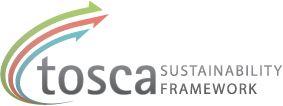
AkzoNobel: Strategy formulation
By Johan Widheden, Sofia Petersson, Sandra Bodén
During 2008 a strategy was put in place in AkzoNobel, built around the twin pillars of value creation and a proactive sustainability agenda. When creating strategies for sustainable development within AkzoNobel, the following organizations have influenced the process.
§ United Nations Global Compact, in which AkzoNobel has been a signatory since 2004.
§ The Code of Conduct is based on the principles of the OECD Guidelines for Multinational Enterprises, the ILO Fundamental Labor Principles and the Universal Declaration of Human Rights and the United Nations Global Compact.
§ World Business Council for Sustainable Development.
§ World Resource Institute. AkzoNobel has worked with the WRI on developing the Eco-systems Services Review and is a member.
§ Global Reporting Initiative Each part of the AkzoNobel actors (R&D, marketing etc.) defines its focus areas of sustainability. Final values, policies and focuses are developed in consultation with the BU’s.
The specific sustainability objectives of the AkzoNobel strategy are:
- Remain in the top three in the Dow Jones Sustainability Indexes
- Reduce our Total Reportable Rate of injuries to 2.0 per million working hours by 2015, equivalent to the best five of our peer sector
- Deliver a step change in people development, in part through substantively improving the diversity in our company
Other issues that AkzoNobel see provide long term strategic value are:
- Working in partnership with customers and suppliers to deliver eco-premium solutions
- Managing long-term resource and environmental issues
- Developing our people to lead and deliver innovative solutions
- Increasingly working in partnership with a range of stakeholders to achieve transformational change.

